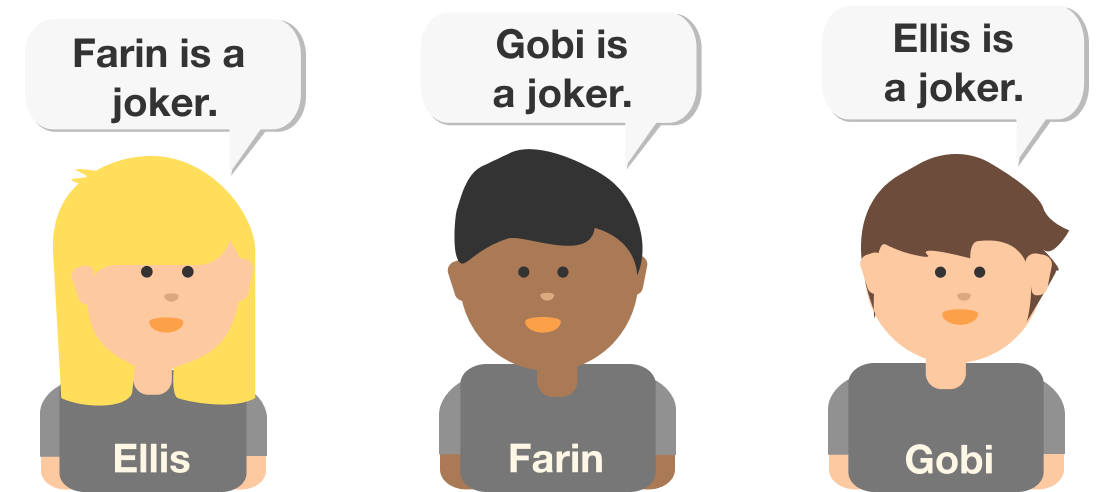Knights, Knaves, Jokers II
Suppose you are visiting an island with knights who always tell the truth, knaves who always lie, and jokers who can do either.
You meet three islanders named Ellis, Farin, and Gobi. They make the following statements:

If you know exactly one of them is a joker , how many of them are knights?
This section requires Javascript.
You are seeing this because something didn't load right. We suggest you, (a) try
refreshing the page, (b) enabling javascript if it is disabled on your browser and,
finally, (c)
loading the
non-javascript version of this page
. We're sorry about the hassle.
Ellis, Farin and Gobi all claim that the next person is a joker.
(Without loss of generality) let 's say that Elis is the joker . Now, trivially Gobi is correct and hence, he must be a knight because there is exactly one joker. This means that Farin is a Knave , since we have established that Gobi is a knight (and hence not a joker).
It is not necessary that Eli is the joker, however, regardless of whoever the joker is, we could repeat the above argument and show that there is exactly one knight. This nice property is because of the fact:
Elis claims joker Farins claims joker Gobs claims joker Elis